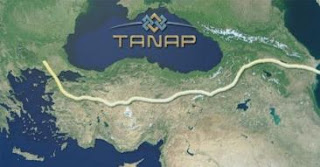Sean Cockerham McClatchy Newspapers
WASHINGTON — Ten years after the United States invaded and occupied Iraq, the country’s oil industry is poised to boom and make the troubled nation the No.2 oil exporter in the world. But the nation that’s moving to take advantage of Iraq’s riches isn’t the United States. It’s China.
America, with its own homegrown energy bonanza, isn’t going after the petroleum that lies beneath Iraq’s sands nearly as aggressively as is China, a country hungry to fuel its rise as an economic power.
Iraq remains highly unstable in terms of security, infrastructure and politics. Chinese state-owned oil companies appear more willing to put up with that than Americans are.
“The Chinese have a higher tolerance for risk,” said Gal Luft, a co-director of the Institute for the Analysis of Global Security, a Washington research center focused on energy.
The International Energy Agency expects China to become the main customer for Iraq’s vast oil reserves. Fatih Birol, the agency’s chief economist, recently declared “a new trade axis is being formed between Baghdad and Beijing.” Birol said that about 80 percent of Iraq’s future oil exports were expected to go to Asia, mainly to China.























.gif)

